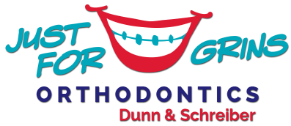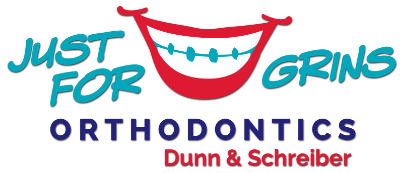Seniors as you get older and closer to the golden age of retirement, you may be thinking of ways you can spoil yourself in “your old age”. You may be considering braces or Invisalign to finally get that beautiful, healthy grin you’ve always wanted and thinking “is 70 too old for braces?”
We at Just for Grins Orthodontics firmly believe that age is just a number! After all, healthy teeth move the same at every age – from 6 to 90. Now you’ve experienced some great times and seen some amazing events, why should you deny seeing the dawn of your dream smile?
So let’s delve into how Invisalign at 70 years old or braces at 60 is possible and how it can benefit you.
Why should I consider braces or Invisalign for seniors?
Orthodontic treatment isn’t just for teens! In fact, 1 in 4 orthodontic treatments are adults and our team has personally treated seniors that are 80 years young! So whether you’re 50, 60, or 70 and want to straighten your teeth, it’s completely possible and could make your oral hygiene routine easier.
How? As we age, our teeth can shift because of natural bone loss, tooth loss, or changes in your habits or oral hygiene routine. This can lead to common orthodontic issues like crowded teeth or spacing issues. These conditions not only affect your confidence in your smile, but can make it hard to easily brush and floss your teeth, and can lead to gum disease.
So what other benefits can you get from orthodontic treatment in your golden years? Let’s check out the pros and cons of braces vs Invisalign treatment.
Braces pros and cons for older adults
Braces may be the type of orthodontic treatment you’re most familiar with. You may have had a friend back in high school who sported braces for a while, or even had them yourself! While today’s braces function the same as their originals, there’s a lot of different styles and advancements made to their design over the last few years.
At Just for Grins Orthodontics, we offer modern self-ligating braces in metal or clear options. While they’re a little similar to traditional braces in look, they use patented technology to allow your braces wires to “slide” gently through the brackets, giving you a comfortable and efficient treatment.
Here’s a few pros to choosing braces for seniors:
- Improves your oral health. (We talked about this already, but it bears repeating!)
- Boosts your confidence. Having a beautiful smile can boost your self-esteem and confidence at any age!
- More socialization opportunities. With braces, you’ll need more check-ins appointments than with Invisalign. That’s more time we get to spend getting to know you, and vice versa.
- Functionality. Braces treatment can improve your bite power and function, allowing you to chew and speak with ease and comfort.
What are some cons of choosing braces?
- Higher risk of orthodontic emergencies. While braces hardware is sturdy, accidents can happen. Whether you dig into some sweet potato pie not realizing there’s nuts and pop a bracket off, or your teeth move quicker than expected and now you have a poking end wire. With more hardware, there’s more things that can break as opposed to Invisalign clear aligners.
- Restrictive diet. If you can’t imagine not having popcorn or snacking on nuts for 18 – 24 months, braces may not be the treatment for you. As any hard, crunchy, sticky foods are off the table for you while in braces.
Invisalign pros and cons for older adults
Invisalign® clear aligners have been rising in popularity since their introduction in the 90s. Some of the things that make them so desirable among adults and seniors are:
- Easier to clean. Invisalign trays are removable which makes brushing and flossing a breeze! Plus the aligners themselves are simple to maintain.
- No diet restrictions. You won’t need to worry about sticky or crunchy foods getting stuck in your aligners and causing damage because you’ll be able to remove them before each meal or snack.
- Practically-invisible treatment. With these clear and discreet aligners no one will be able to tell you’re in orthodontic treatment unless you tell them.
Cons:
- Smile results depend on compliance. With Invisalign, you must be committed to wearing your trays for 20-22 hours a day.
- Must be dedicated to a strong oral hygiene routine. You’ll need to brush your teeth and gums after every meal, floss once a day, and clean your Invisalign trays once a day.
- Aligners can get lost. Because Invisalign aligners are removable, they can be easily lost if not placed in an Invisalign carrying case.
Should I get braces or Invisalign?
Deciding between braces or Invisalign can be a hard decision no matter your age! On your first visit with us, our highly-experienced orthodontists will give you their recommendation on which treatment option may be best for you and your smile needs.
If you’re still stuck on which option to choose, think of the pros and cons of each and how they fit your lifestyle.
Still have questions on braces or Invisalign for seniors?
Please don’t hesitate to reach out to us with any questions! We’re here to guide you throughout your orthodontic treatment and help you achieve your dream grin.
Haven’t started your smile transformation yet? Request your complimentary consultation with our experienced orthodontists in Millbrook, Wetumpka, or Montgomery, AL.



